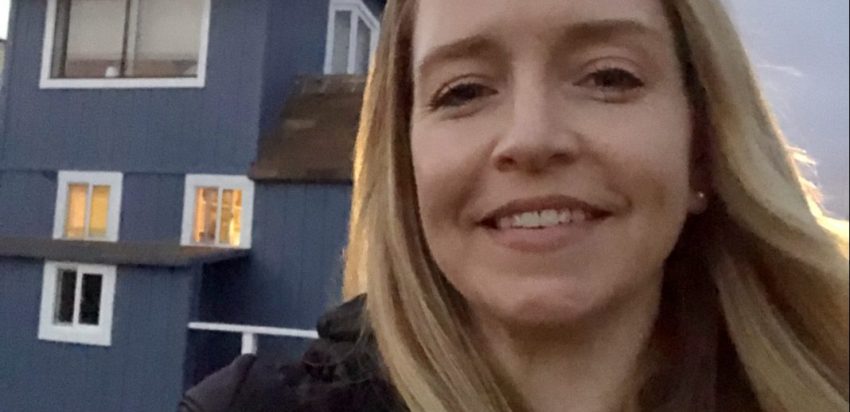Email Marketing, Channel Strategy and Website Optimization: The Top 3 Skills Korinne Munson Took Away From the Digital Marketing Boot Camp

For Korinne Munson — a senior communications professional in the wine and spirits industry — enrolling in Berkeley Digital Marketing Boot Camp wasn’t about landing a new role. It was about continuing what she’s done for years — but doing it better.
“The largest brand voices are now entirely digital,” said Korinne. “I wasn’t feeling 100 percent up-to-snuff with those channels, but handing those responsibilities off to outside agencies or junior staff wasn’t something I was comfortable with. I recognized that I wasn’t a well-rounded marketer without digital skills — and I very consciously committed to changing that.”
Korinne looked into different digital marketing courses, and took upwards of 40 short-form classes on her own. Berkeley Digital Marketing Boot Camp stood out among a slew of similar, quick-fix courses and certificate programs. It was an intense five-month curriculum, covering everything from data analytics to SEO to Google Trends — and going into each of them in depth. She decided to enroll.
Korinne knew the next five months of her life would be dedicated to digital marketing and nothing else. She booked an extended trip to Europe to make the most of her pre-program freedom. When she returned, she was all-in. And just as she had expected, the five-month program transformed her ability to succeed in a role she’d already held for years — well into the future.
According to Korinne, these were the three most career-changing topics covered by the course — especially as she emerged from the boot camp at the peak of the COVID-19 crisis.
1. Email Marketing
“This topic is extremely relevant — and is one of the most valuable things I learned in the boot camp,” said Korinne. “It’s one of the specialties that I came out of the course with, including an understanding of everything from effective headlines, to open rates, to cadence, frequency and automation. At the beginning of COVID, every brand hit us with a bunch of emails, because that’s the only lever they could fill. We all felt that surge. But doing it with the right cadence, creating a headline that’s going to make recipients want to open it and then actually driving them to that action, is the whole point of powerful email marketing.”
“I’ve sent emails on behalf of brands for a long time,” continued Korinne. “But this course leveled up my skills, teaching me to analyze the funnel and tailor my approach in a strategic way, and ultimately, make more sales. Focusing on these things — and learning to master them — suddenly felt a lot more relevant than it had in the past.”
2. Channel Strategy
“In digital marketing, there are a ton of levers one can pull,” said Korinne. “There’s LinkedIn, there’s YouTube, there’s Facebook. For most brands, unless you’re a really big company, it’s probably a mistake to be on all of them. It’s just too wide of a pallet to work from. I’m not a pro in all of these, but the idea of channel strategy and being more intentional about it, aligning the strategy with your target audience and your KPIs, stems from the idea that most brands either can’t or shouldn’t be everywhere. The course teaches you to look very systematically at a company and all of the ways they’ve utilized their channels — becoming more strategic with your recommendations based on what’s been successful, and why.”
“Understanding channel strategy and the part that each can play ultimately comes down to one idea,” said Korinne. “You can’t do everything effectively — even if you are a big fish brand. I have a much firmer grasp on the digital strategy that’s folded into that because of the boot camp.”
3. Website Optimization
“Right now, the one topic that’s arguably most important to learn is how to optimize your brand website,” said Korinne. “We spend a lot of time in the boot camp doing website audits to build these skills, and it has monumental effects. Your website is your biggest brand voice, bar none — and if you don’t get your messaging right there, it echoes everywhere. The importance of that, of your website being tight, isn’t something any brand can afford to overlook right now — especially when so many physical locations and in-person marketing channels are closed. You have to optimize your site for SEO, you have to continually add fresh content, you can’t leave it sitting static. From web crawlers to new links to new copy, you have to be constantly updating — and that’s incredibly relevant right now, your website is the portal to your brand more than ever.”
“I’m not necessarily a master in all of these topics, but I am aware of them,” said Korinne. “That’s essential — being aware of everything in your arsenal, that you can go back to later and leverage. I’ve dealt with websites my whole career, but now I have a better understanding of all of the different elements of the user experience. I can be a bigger part of the conversation and a better part of the team. A lot of the things I’m speaking about really comfortably and calmly right now I would have been half faking before. I knew the words, but I didn’t know what they meant — or their functionalities. A lot of people use them casually, but now I have a depth and breadth of knowledge that I didn’t have before. That’s how I’m able to do my job better.”
 Live Chat
Live Chat